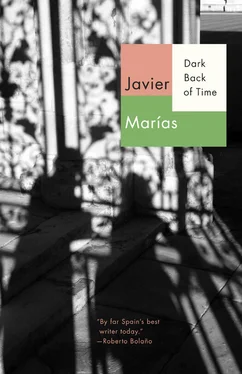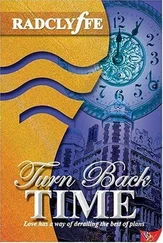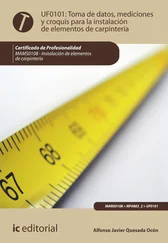
And I didn’t know it was the last time when I last saw Juan Benet, my literary teacher and friend for twenty-two years or more. We did know he was gravely ill and we wouldn’t have him with us much longer, but I was sure I would still see him a few more times, and the last visit I made to his house with Mercedes López-Ballesteros wasn’t felt to be the farewell by either of us, we weren’t somber, we didn’t think the time had come yet to say goodbye, in our minds. I had recently come back not from Paris this time but from London, and was spouting funny and semi-apocryphal anecdotes I had heard from Guillermo Cabrera Infante and his wife Miriam Gómez, both stupendous storytellers — imitating their Cuban accents for good measure — and Don Juan, who held them in great affection, always enjoyed their stories. Some of the anecdotes were so ludicrous that they made him laugh very hard, so hard that at one point he started to protest and told me with little conviction, amid gales of laughter, “Ouch, don’t make me laugh so much, it hurts me here,” pointing to his chest or his side, I don’t remember. But I was merciless and went on raving and recounting and exaggerating, I no longer know if it was the incredible story of Borges in Sitges (“a very savage place”) with the slice of pa amb tomàquet that got stuck, or the one about the erect “homosexualistic” kangaroo in Australia, or the one about the actor Richard Gere and the amatory device that got stuck, or the one about Dr. Dally, half of whose body (longitudinally) was immobile but of varying colors and who sold books that he shouldn’t have, the Cabreras are inexhaustible. And thanks to them I made Don Juan laugh endlessly that night and how glad I am now that I did, and that I didn’t stop when he said the laughter was hurting him, because it turned out to be the last night, and so my penultimate vision of him is of a Juan in great hilarity. I didn’t see him again after that, I only spoke to him over the phone to tell him I had re-read Volverás a Región —his first novel, published nearly twenty-five years before — for an article I was writing and that now it had become truly good. “Yes? You think so?” he asked with unfeigned ingenuousness. In fact, I did see him again, but it was a few minutes after he had died, in the first hour of January 5, 1993, almost five years ago now. Vicente Molina Foix was with me and he went home to get some cufflinks for Juan to be buried in, because neither his wife nor his children could find his own that night (no one could have identified Don Juan from his cufflinks). The night Mercedes and I paid our visit was the night of the 12th to the 13th of December, a Saturday. He came to the door to say goodbye, it was late, and the final glimpse was of his tall figure at the top of the stairs to the door of his house in El Viso, with a smile still lingering from the recent laughter like a slight, somnolent trace on the face of someone who’s falling asleep, the long shape veiled in penumbra and outlined against the light from inside, saying goodbye with a waving hand, but not in his mind. As soon as he closed the door and we’d gone around the corner, Mercedes burst into tears and buried her face in my shoulder, getting my coat wet. She had worked for him every day for three years, and she, I think, had said goodbye, in her mind.
After Ewart died, many hours passed during which it never occurred to anyone to imagine that he wasn’t alive, and many more hours went by before his family and friends learned that some time ago by then he had said his final farewell to the world beyond the ocean, perhaps without realizing it or even saying it to himself, not even in his mind. I don’t know why the 31st of December and 1922 are given as the date and year of his death, when there were no witnesses — not even the person who killed him was a witness, and had no certainty of having killed — and he could well have died during the first hour or first minute of January 1, who knows, and therefore in 1923. It’s frightening to think of the hours — soon distant and forgotten, yet so slow and negligible while they’re going by — during which our friends and relatives think we’re alive when in fact we are dead, and they sleep peacefully, dreaming their primitive dreams, or watch television or laugh or curse or fuck instead of dropping everything and running belatedly to meet us and make phone calls and attend to formalities and not believe it, and grieve and despair, to whatever degree. This fear isn’t for the dead, for their imagined solitude and abandonment, but for the living who will later have to reconstruct those hours — the actual passage of which is now unusable and annulled, and which are even slower and more negligible in memory — that they lived through unaware their world had changed, easy and indifferent or with a happiness now improper, or maybe even speaking ill of the one now dead. “Put out the light, and then put out the light,” perhaps that’s why — to make it entirely certain — it has to be said twice, once for the event, once for the telling. And, too, as I said at the beginning, remembering and telling can become not only homage but affront.
Wilfrid Ewart’s dead body was not found until nearly noon on New Year’s Day, so almost twelve hours had passed without anyone realizing that this was what he was now, a dead body, and no longer one of us, if saying “us” makes any sense. According to the Mexican newspaper Excelsior , of Wednesday January 3, 1923, which both González Rodríguez and Muñoz Saldaña consulted and cited for me verbatim, respecting both its incorrect punctuation and its typographical errors:
Quien primero tuvo conocimiento del suceso fue la señora Angelina Trejo de Estrevelt, quien presta sus servicios en calidad de camarera en el Hotel Isabel. La señora de Estrevelt, como de costumbre se dirigió ayer en la mañana, ya cerca del medio día a las habitaciones superiores con el fin de hacer el aseo de las mismas. Al llegar al cuarto número 53 miró por la cerradura y le extrañó ver que la luz artificial estaba encendida. Llamó a la puerta varias veces y no obtuvo contestación alguna. Temerosa de que algo hubiera occurrido al pasajero, penetró a la habitación, encontrando las ropas de la cama en perfecto orden. Poco después y dirigiendo la vista al balcón con vista a la calle, que se encontraba abierto, vio el cadáver del señor Etwart, en medio de un charco de sangre ya coagulada .
(The first to take cognizance of the event was Señora Angelina Trejo de Estrevelt, who lends her services to the Hotel Isabel in the capacity of chambermaid. Señora de Estrevelt, as is her custom made her way yesterday morning, already close to noon to the upper rooms in the aim of ensuring the hygiene of same. On reaching room number 53, she looked through the keyhole and found it strange that the electric light was on. [“Put out the light, and then put out the light,” that again.] She knocked several times, and obtained no response whatsoever. Fearful that something might have happened to the transient occupant, she went into the room, finding the bedclothes in perfect order. Shortly after that, directing her gaze to the balcony overlooking the street, which was open, she saw the corpse of Señor Etwart, in a puddle of already coagulated blood.)
At this point, we might well ask ourselves why the chambermaid looked through the keyhole first, before taking any other step, and the corresponding news article from the English-language section of the same newspaper does not clear up this mystery, though it does call Ewart Ewart and not Etwart, and specifies that
Читать дальше













